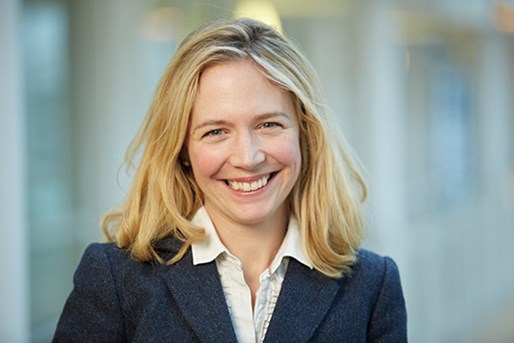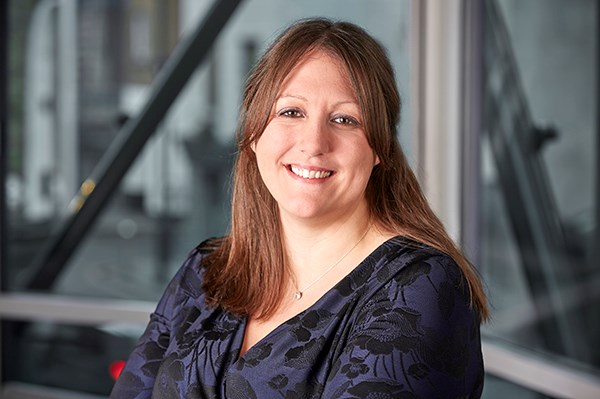Pioneering legal service delivery model is showcased at Legal Tech and Innovation seminar
Addleshaw Goddard has launched ‘Intelligent Delivery’, its pioneering new model for legal services provision that has been created to deliver enhanced value to clients.
It was showcased at a Legal Technology and Innovation seminar at the firm’s London offices which featured a high profile line-up of international speakers, including senior legal executives from Microsoft, Royal Mail and Network Rail.
The seminar brought together in-house and outside counsel to look at how the latest legal technology and innovation can improve collaboration and drive efficiencies into legal processes to meet the demands of an increasingly complex and fast-paced business environment.
Opening the event, Axel Koelsch, Chief Operating Officer at Addleshaw Goddard, said:
“As a firm, we have a history of looking ahead and developing new delivery models. We know that we generate most value for clients when we integrate flexible resourcing, process improvement, technology and strategic consultancy into customised solutions around the specific needs of clients. We call this approach Intelligent Delivery.”
Speakers at the event included Lucy Endel Bassli, Assistant General Counsel, Legal Operations and Contracting at Microsoft where she oversees its legal operations and a centralised contracting office, specialising in process efficiencies and automation. She is an acclaimed, international speaker on legal services innovation, legal technology and legal process outsourcing.
She explained how she launched a new 'managed services' engagement with law firms, reducing an extensive panel to just two, Addleshaw Goddard and US firm, Davis Wright Tremaine to drive efficiencies and stimulate collaborative, partnership working. Addleshaw Goddard won the ‘Most Innovative Law Firm’ trophy in the ‘Resourcing and Efficiency’ category of the 2016 FT Innovative Lawyers Award for its work in developing this new business model.
Ms Bassli said that the legal world was one of the last great business sectors to change the way it operates and that law firms and in-house teams must increasingly collaborate in developing new and innovative ways of working with intelligent, data-driven and substantive outcomes. Technology was important but it would not provide all the answers and the required level of change would not happen overnight.
She said that clients and law firms must "look together to find nuggets of opportunity to do something to drive change in the legal industry so that we are not talking about the same stuff in five years’ time."
In a recent article she wrote:
“It is time for a radical shift. It is time for law firms to deliver services with the quality of a law firm but with the operational excellence of an outsourcing company”
Other speakers included Sarah Barrett-Vane, Director of Legal Operations at Royal Mail plc, Dan Kayne, General Counsel, Routes, Network Rail and Jay Hull, who was Chief Innovation Partner at Davis Wright Tremaine until earlier this year.
The seminar heard that law firms and in-house teams need to develop ‘open, genuine and transparent’ relationships and be prepared to take risks in trying something new and in encouraging a culture of innovation.
Mr.Kayne spoke of the ‘Reflection Hour’ initiative he introduced into his internal legal team, actively encouraging his lawyers to spend an hour a week ‘away from their day job’ thinking of new ways of working. It was important, he added, for leaders to create a culture which supported and encouraged people to ‘have a go’ and play an active part in a change process.
He also spoke about how business could learn from the ‘marginal gain’ philosophy of sport, where a multitude of small, incremental improvements delivered a cumulative impact. His team benefitted by challenging themselves to change of 100 items in 100 days.
Ms Barrett-Vane, whose role involves overseeing the introduction of new technology within legal operations at Royal Mail, managing group legal budget and running all panel reviews, outlined the benefits of adopting an e-billing solution within the department in 2015.
The system had delivered major benefits in real time reporting, spend management and data analysis enabling the business to take better, informed decisions – “news you can use”. Since 2012, when her legal operations role was created, spend on external legal services has been cut by 44%, from c. £30 million a year to £17 million.
She also said she was in favour of moving to longer term panel reviews of four to five years to facilitate the development of deeper relationships with Royal Mail’s law firms.
Jay Hull, who now advises law firms, in-house legal departments and legal technology providers to help them thrive in the evolving operating environment for legal service, called for more collaboration between in-house and outside lawyers to accelerate the pace of change within the sector.
He said there should be no unnecessary barriers between a client’s legal department and their law firm and advocated increased spend on R&D within the profession.
One of his 'eureka moments', he said, came in his former role as a lawyer when, reviewing a client document, saw it marked as ‘Draft 35’.
“How could any client think that was a good outcome? It was also soul-killing work that no-one would want to do. I thought there had to be a technological solution, a better way of working. And of course, there was.”
Kerry Westland, Head of Innovation and Legal Technology with Addleshaw Goddard outlined how all the elements of Intelligent Delivery has been used in one of the biggest real estate mandates in the energy sector last year, the separation of National Grid’s gas distribution business. The project included developing the framework and processes for more than 15,000 properties as well as the hive out and separation of regulated and non-regulated assets.
Experts from the firm’s Real Estate division and its technology team, working with National Grid’s in house legal department, configured Addleshaw Goddard’s HighQ based portal including collaboration, document management, workflow, real time reporting and document automation tools. The system has more than 300 users from the client, other law firms, surveyors and engineers and holds over 69,000 documents.
The combination of technology, flexible resourcing and legal project management delivered a complex project on time, on budget and beyond scope.





